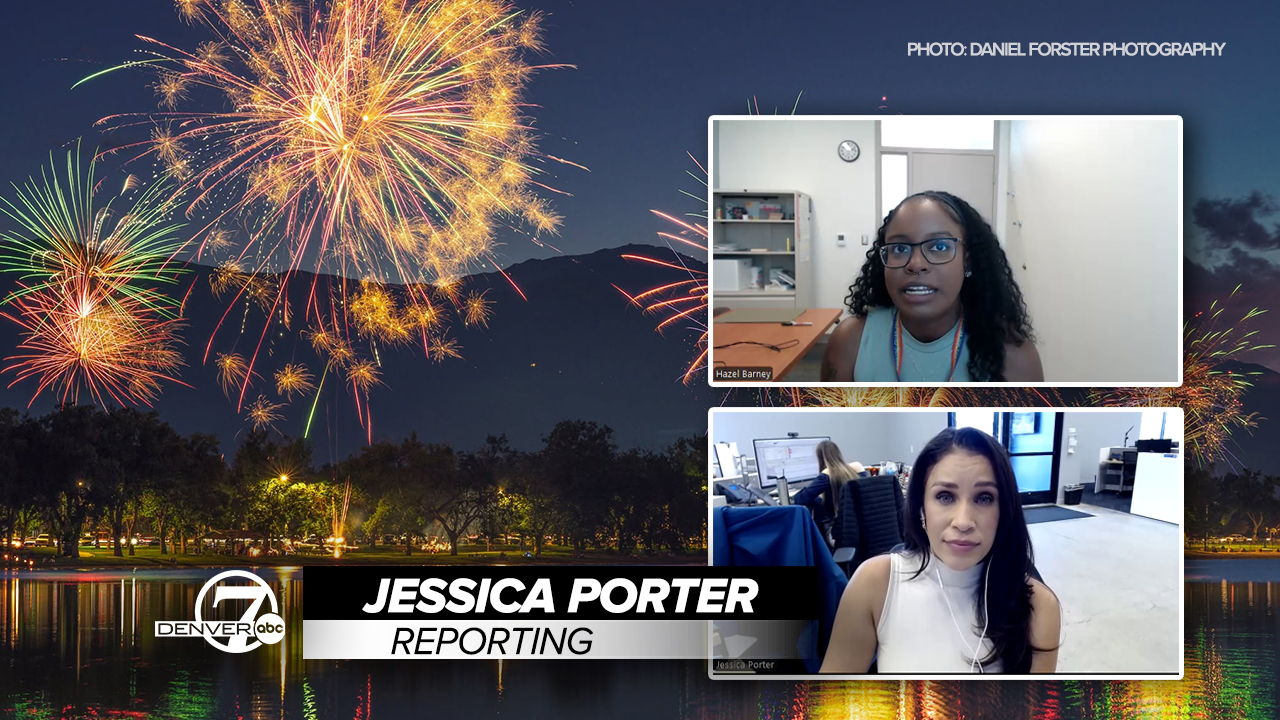DENVER — As we finalize our Fourth of July plans here in Colorado, it is important to remember the impact those celebrations can have on our veterans with post-traumatic stress disorder (PTSD).
The latest data on the number of veterans in our state from the U.S. Department of Veterans Affairs shows there are 369,318 veterans in Colorado. About 7% of those, or 25,830, suffer from PTSD.
“There's a big misconception that PTSD is only correlated to veterans who have experienced combat or have been down range, and that's just not true. We have veterans who have PTSD, who have experienced MST (military sexual trauma), or they have experienced training accidents that happen on U.S. soil,” Hazel Barney, a U.S. Army Veteran, told Denver7's Jessica Porter this week.
While many people look forward to the holiday, for others, the loud, sudden noises and bright flashes of fireworks can be triggering.
Those bright flashes and sudden, loud noises can cause anxiety, flashbacks, and sleeping difficulties in veterans with PTSD, according to the VA.
The VA recommends that if you're planning on setting off fireworks, that you let your neighbors know in advance.
“It can be as simple as a conversation like, ‘Hey, I'm going to be doing fireworks tonight. Just want to let you know,'” Barney said.
Other ways the community can help are by limiting fireworks to the Fourth of July holiday and not using them in the days before or after the holiday.
Finally, Barney suggests using fireworks during reasonable hours.
“It's more so when it's unpredictable, when it's in those times where the Fourth of July was last week and we still have fireworks. Those can be a little unsettling,” Barney said. “I’ve learned how to be able to share that holiday with my children and my family now without being in distress. “
Barney, who is also a Peer Support Specialist with the VA, told Denver7 learning coping skills such as mindfulness and breathing exercises has helped her. She also recommends staying in a place where you feel protected and talking to friends and family who can support you.
Here are more tips and resources for Veterans with PTSD:
- If you receive care from VA Eastern Colorado, you can call 720-723-7310 (Rocky Mountain Regional VA Medical Center) or 719-327-5660 option 4 (PFC Floyd K. Lindstrom Outpatient Clinic) to talk with their mental health team.
- Veterans in crisis or those concerned about them can call 911, the Veterans Crisis Line at 988 and select 1 or visit the Veterans Crisis Line website.
- Download the free PTSD Coach app for coping tools and resources.
- Use earplugs, headphones, or white noise machines to help block fireworks noise.
- Consider spending time in quieter locations or areas where fireworks are not allowed.






